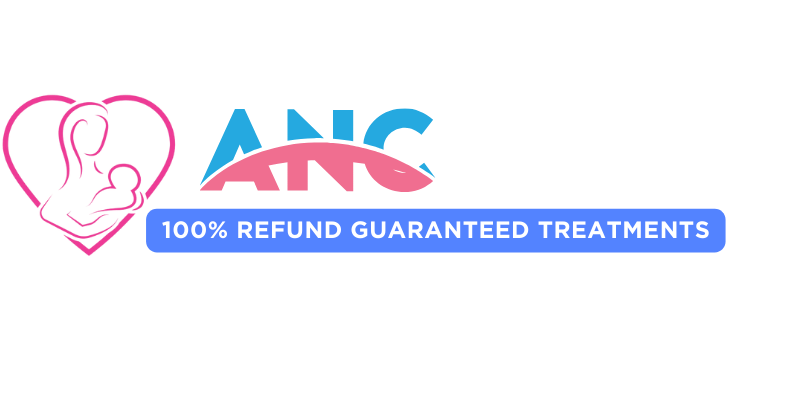Navigating the complex journey of in vitro fertilization (IVF) can often be a path filled with emotional highs and lows, especially when faced with an unsuccessful attempt. Understandably, such an outcome can lead to a pressing quest for answers and clarity. In our latest post, we delve into the multifaceted realm of IVF, breaking down the possible reasons why this sophisticated reproductive technology might not lead to the much-anticipated positive result. From discussing the common causes that can thwart the process to examining the multitude of factors that influence its success, we aim to provide a comprehensive understanding. Furthermore, we will explore the inherent challenges of IVF, as knowledge is both a source of solace and an empowering tool for those ready to embark on subsequent cycles. Join us as we unravel the complexities behind unsuccessful IVF attempts, fostering awareness and guidance for couples on their path to parenthood.Explore the reasons behind IVF failure, factors influencing success, and common challenges in our informative guide to understanding IVF outcomes.
What are the common reasons for IVF failure?
Understanding the multifaceted causes behind an unsuccessful IVF (In Vitro Fertilization) attempt is crucial, as they can range from the complexities of individual reproductive biology to the nuances of the procedures employed. One of the most significant contributing factors to IVF failure is the age of the woman undergoing the procedure; as female age increases, the probability of chromosomal anomalies in the eggs surges, leading to a higher risk of embryo implantation failure or miscarriage.
Another essential aspect to consider is the sperm quality, where factors such as morphology, motility, and concentration play a vital role in the successful fertilization of the egg and subsequent embryo development. Moreover, on some occasions, issues such as poor ovarian response to hormonal stimulation can impede the retrieval of a sufficient number of viable eggs for fertilization, contributing to the challenges associated with the IVF process. Also, environmental factors and lifestyle choices such as smoking, excessive alcohol consumption, and obesity have been known to negatively impact both egg and sperm quality, thus affecting the success of IVF.
Not to be overlooked are the technicalities and the clinical expertise required during the IVF procedure itself, where any lapse can lead to complications such as improper embryo transfer or suboptimal laboratory conditions that may affect embryo quality. It is also vital to acknowledge the role of underlying medical conditions such as endometriosis, polycystic ovary syndrome (PCOS), or certain genetic disorders that can inherently diminish the chances of IVF success. Despite the complexity and challenges, ongoing medical research and advancements in reproductive technology continue to improve the outcomes and address the common reasons for IVF failure.
What are the factors that affect the success of IVF?
When considering In Vitro Fertilization (IVF), numerous factors play an influential role in determining the prospects for a successful outcome, factors which range from biological and medical nuances to the advanced reproductive technologies involved in the IVF process itself. It is crucial for couples to understand these elements, as they directly impact the chances of conceiving a child through this sophisticated fertility treatment.
One central aspect affecting IVF success rates is the age of the woman undergoing treatment; typically, younger women tend to have higher success rates primarily due to the better quality and quantity of their eggs, whereas, for women over the age of 35, the likelihood of IVF success gradually declines, with a more rapid decrease noted after the age of 40, which can often be attributed to a decreased ovarian reserve and lower egg quality. Similarly, the male partner’s sperm quality can profoundly influence the IVF outcome, as optimal sperm motility and morphology increase the chance of successful fertilization of the egg during the IVF procedure.
Moreover, the overall health and lifestyle factors of both partners can significantly impact IVF success; for instance, conditions such as obesity, smoking, or excessive alcohol consumption can impair fertility and hence reduce the chances of achieving a successful IVF pregnancy. In addition, underlying medical conditions like endometriosis in women or varicocele in men may pose challenges to the success of IVF treatment; therefore, such health issues must be assessed and managed accordingly prior to and during IVF attempts. Ultimately, the experience and expertise of the reproductive specialists and the quality of the IVF clinic also emerge as critical components that contribute to the success rate of IVF procedures, underscoring the importance of selecting a reputable fertility center with proficient medical professionals specialized in assisted reproductive technologies.
What are the challenges of IVF?
In vitro fertilization (IVF) can be a strenuous journey, one laden with a multitude of challenges that range from physiological and emotional to financial and social. One notable challenge involves the complex orchestration of medical treatments and procedures, demanding strict adherence to medication regimens and timing—an imperative element in the IVF process that often places a significant strain on individuals and couples hoping to conceive.
Moreover, IVF participants must brace themselves for the emotional rollercoaster that accompanies the fertility treatment. The high hopes placed on each cycle, juxtaposed with the potential for disappointment, can engender a turbulent emotional landscape, one compounded by the fact that the process does not guarantee success. Additionally, IVF procedures are often accompanied by a barrage of hormonal treatments, which can elicit unpredictable emotional responses, further exacerbating the psychological challenges that patients must navigate.
Financial considerations are yet another formidable obstacle in the path to parenthood via IVF. The exorbitant costs involved in multiple IVF cycles can be prohibitive for many, creating disparities in access to fertility treatments based on socio-economic status. Such financial pressures can lead to further psychological distress, creating a compounding effect that renders the journey toward conception an arduous endeavor. Despite these noteworthy challenges, the pursuit of IVF continues for many, buoyed by the hope of bringing new life into the world—a testament to the resilience and determination of prospective parents.




